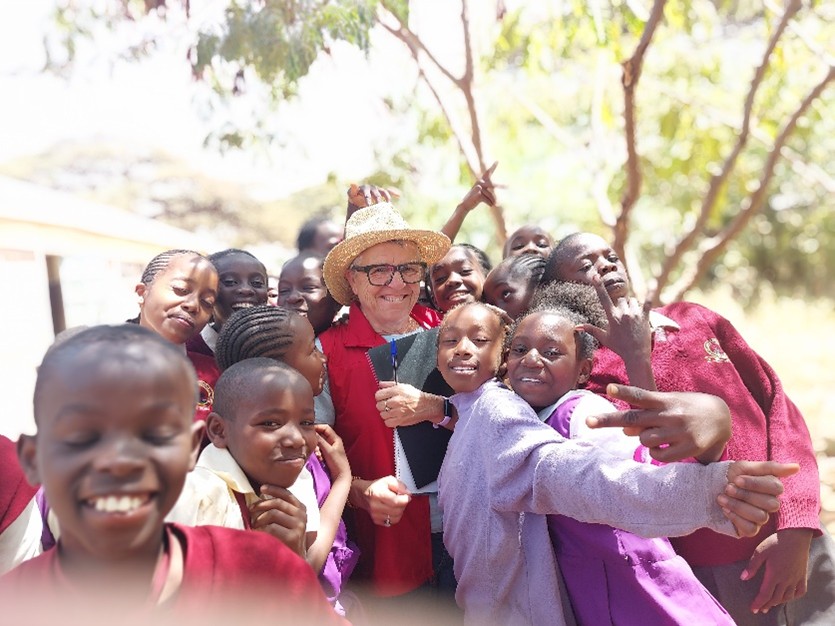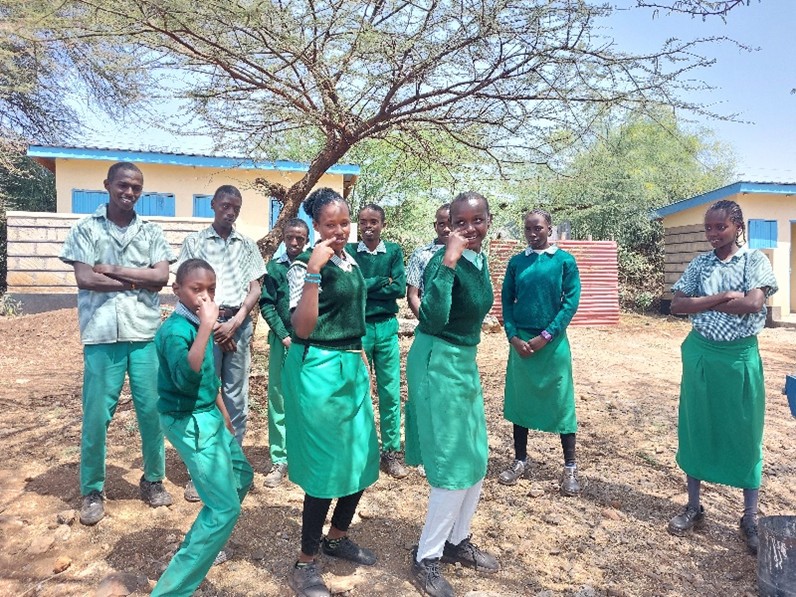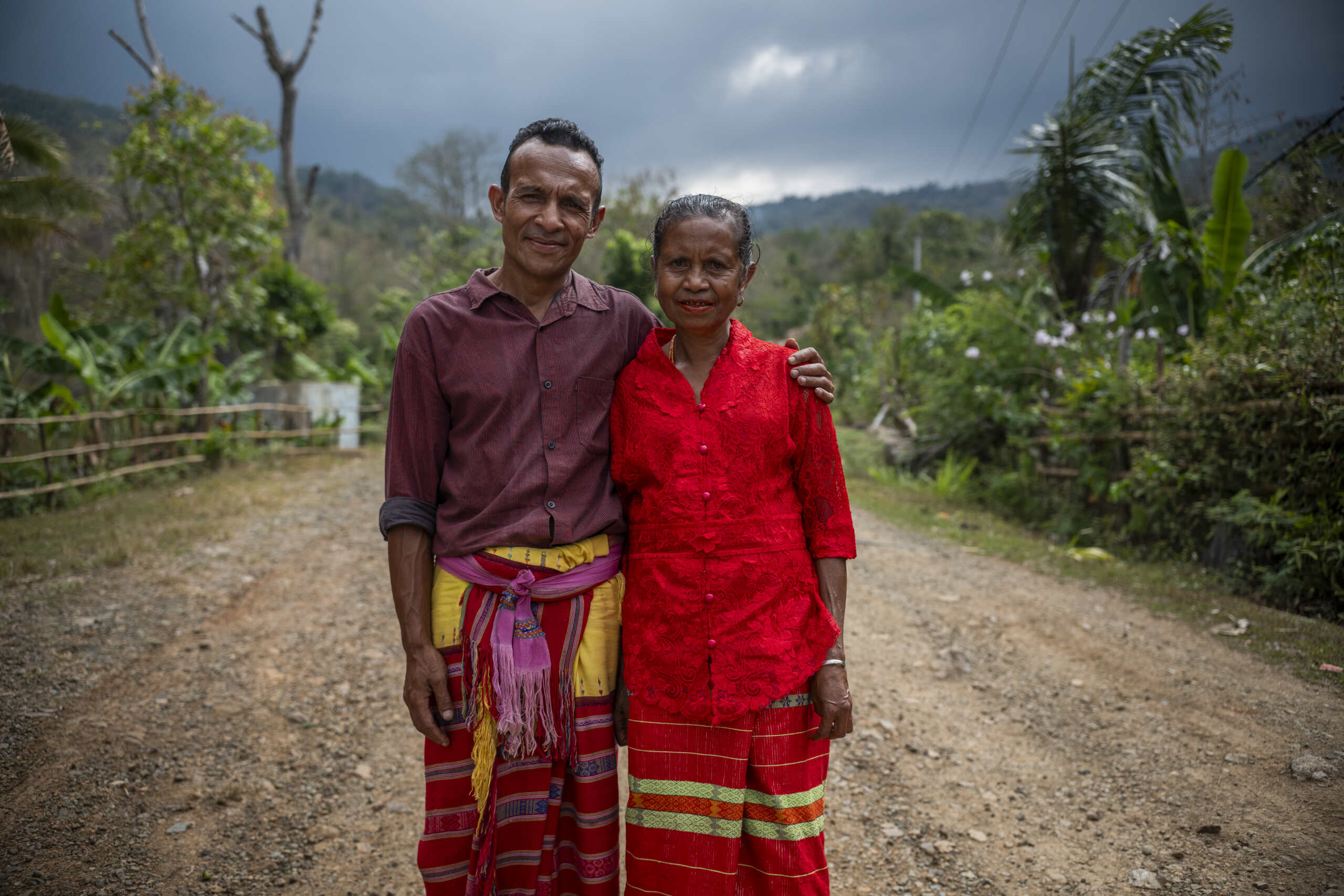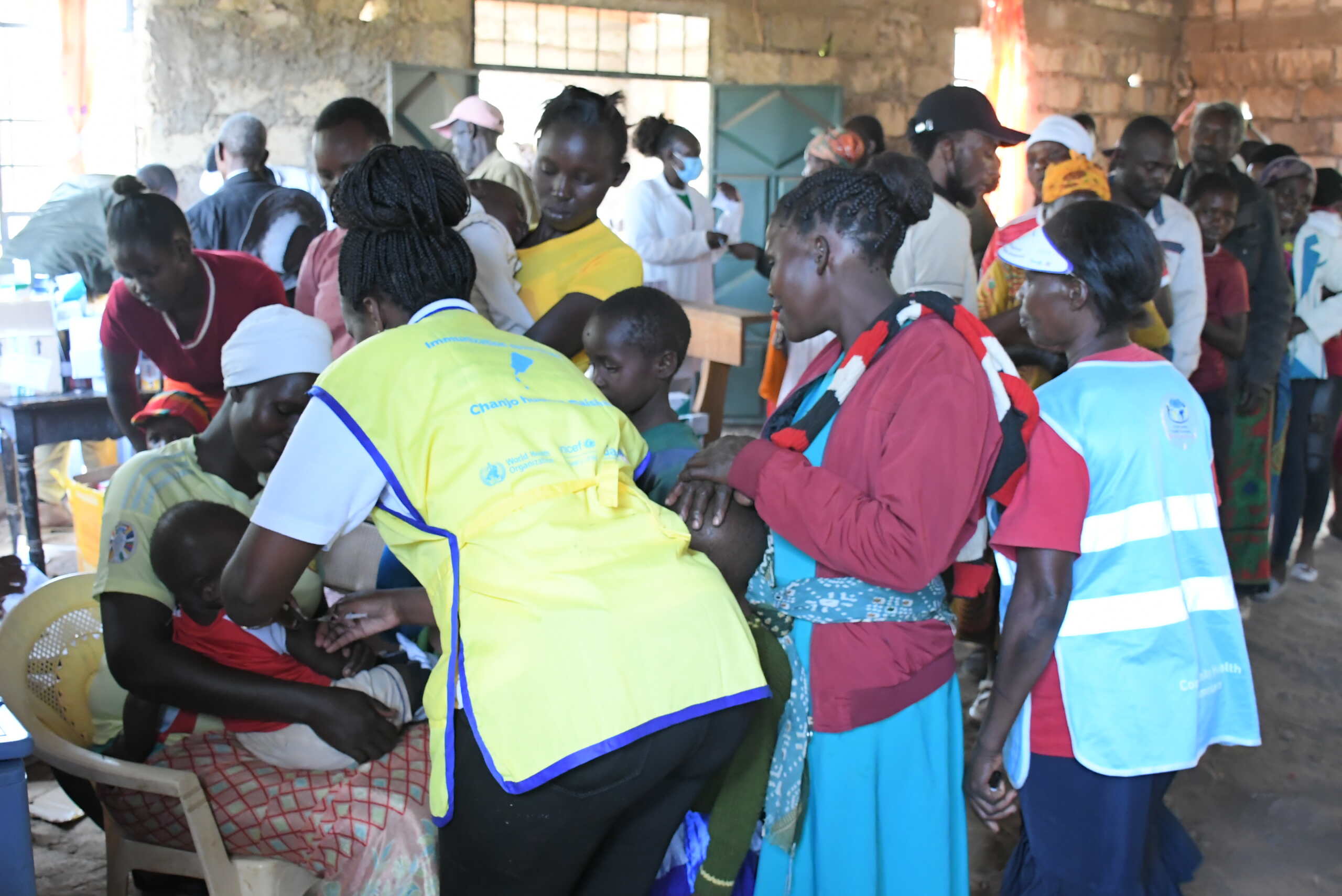From dust to dignity: A young girl’s journey to cleanliness and hope in Isiolo
Stories | September 24, 2025
In the arid plains of Isiolo County, Kenya, where the sun scorches the earth and water is a precious commodity, 12-year-old Joy* used to start her mornings with dread. Her school, nestled in a remote village, had no proper toilets or handwashing stations. At home, her family practiced open defecation, not out of choice, but because they had no alternatives.
Joy, like many children in her village, often fell ill with stomach problems. Her younger brother had once been hospitalised with severe diarrhoea. The community knew the risks, but lacked the knowledge, resources, and support to change.
That began to shift when a group of health workers supported by African Inland Church Health Ministries (AICHM) arrived in her village and her school, accompanied by officials from the Department of Public Health. They spoke about a new project supported by CBM – one that aimed to eliminate open defecation and improve hygiene through something called Community-Led Total Sanitation (CLTS). Joy didn’t understand all the terms, but she experienced something she hadn’t experienced before: hope.
Her school was among the 30 schools selected to form Health Clubs, where students learned about personal hygiene, the importance of handwashing, and how diseases like trachoma and cholera could be prevented. Joy eagerly joined. She learned how germs spread, how to wash her hands properly, and why toilets mattered – not just for comfort, but for dignity and health.
“I used to think getting sick was normal,” Joy said. “Now I know it doesn’t have to be.”

The club gave her more than knowledge – it gave her a voice. She began talking to her classmates, her teachers, and even her parents. She showed her mother how to wash hands using a tippy tap, a simple handwashing device made from a jerrycan and sticks. Her father, a quiet man, listened as she explained how building a latrine could protect their family.
Soon, her village was one of the 10 participating communities where model latrines, compost pits, and handwashing stations were built. Joy’s family received support to construct an accessible toilet, as her grandmother has a disability. For the first time, her grandmother could use a toilet without help.
The change didn’t happen overnight. It came through 99 dialogue sessions, 115 action days, and the tireless work of 44 trained health workers. It came through the voices of children like Joy, who carried messages from school to home, and from home to the wider community.
Joy’s story is just one among thousands. In total, 15,994 students were reached with behaviour change messages. The project didn’t just build toilets – it built awareness, inclusion, and resilience.
Today, Joy walks to school with pride. Her school has clean, accessible handwashing stations. Her village no longer practices open defecation. And she dreams of becoming a nurse, so she can help others the way she was helped.
“I want to teach people how to stay healthy,” she says with a smile. “Because everyone deserves to live with dignity.”

CBM Australia acknowledges the support of the Australian Government through the Australian NGO Cooperation Program (ANCP).
*Name changed.
https://www.cbm.org.au/stories/from-dust-to-dignity-a-young-girls-journey-to-cleanliness-and-hope-in-isiolo
Related Stories

How CBM is making a difference in Indonesia
For more than 45 years, CBM Global has been working alongside communities in Indonesia to ensure people with disabilities...

Coordinating inclusive health outreach in Meru County
For many households in Meru’s rural and remote areas, basic health services are physically...

Share your advocacy preferences with us
Thank you for helping us to advocate for the one billion people with disability globally. CBM Australia advocate across...
